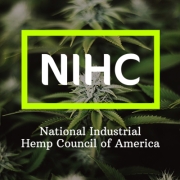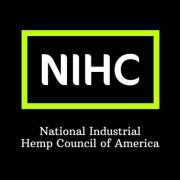The future of industrial hemp looks bright as experts outline its potential at the 2021 National Hemp Symposium.
 Industry experts from various private and governmental sectors convened this week for the first-ever virtual 2021 National Hemp Symposium, brought to life by the National Academies of Sciences Board on Agriculture and Natural Resources (BANR) and Oregon State University’s Global Hemp Innovation Center (GHIC).
Industry experts from various private and governmental sectors convened this week for the first-ever virtual 2021 National Hemp Symposium, brought to life by the National Academies of Sciences Board on Agriculture and Natural Resources (BANR) and Oregon State University’s Global Hemp Innovation Center (GHIC).
National Industrial Hemp Council (NIHC)’s board member Patricia Sheikh, Senior Vice President of Roots of Peace, moderated the two-day event, along with organizers Jay Noller, Director and Lead Researcher, and Jeffrey Steiner, Associate Director, both of the GHIC. Sectors represented included energy/biofuel, automotive, environmental, USDA, food and nutrition, apparel, manufacturing, banking, food and pharma and defense.

The event explored industrial hemp potential as an up-and-coming top U.S. commodity on the national and international stage. Presenters outlined uses and opportunities from their sectors that could be significant streams of income for U.S. producers with adequate supply to meet demand – a concern cited by most of the presenters. Things such as wood replacement in construction, desirable fiber in apparel, and automotive parts were highlighted. 3M is testing alternative uses of hemp in their manufacturing as part of their commitment to sustainability.
The outlook is exciting and hemp is seen as a top contender that could significantly stimulate the American economy, once obstacles are removed.
NIHC’s Patrick Atagi presented an informative session on hemp commerce that reflected this potential. “We can absolutely change the world with hemp, it is amazing. There are so many ways to succeed,” he noted.
“Yet, there are many obstacles to getting hemp product to market, such as transportation,” Atagi continued. “Working at the national level to influence the Drug Enforcement Agency on their view of hemp enforcement will open up commerce.
“The federal and most state governments are not opposed to hemp. As an example, NIHC recently received $200,000 to promote U.S. hemp internationally through the USDA Market Access Program. NIHC is also pursuing a domestic marketing program through a national hemp checkoff initiative. A hemp checkoff has the potential to positively impact the industry in a substantive way similar to the ‘Got Milk’ campaign and ‘Pork the other White Meat’ checkoffs.”
In addition to protecting the hemp brand and marketing, which includes combatting negative attacks with positive data and facts, NIHC sees its role as a partner with the government, especially through participation on working committees. “As a recognized partner with USDA, it puts NIHC at the table in international negotiations, with their seal of approval. To be competitive in these markets, like Asia and Europe, we need solid research on what those unique consumers want, what they like, to avoid the unintended consequences of not knowing.”
Ultimately, there are many hurdles including standardization, certification, and testing here in the U.S. that must be addressed, says Atagi. “The consumer has right to know what they are buying and to feel safe. They want to know ‘what do I buy’ and ‘how much do I take.’”
Bonny Jo Peterson of the Industrial Hemp Association of Washington, and co-presenter to Atagi’s session, agreed. “We want to grow, harvest and automate an industrial hemp crop for a sustainable market, which produces a quality product that people can trust. We really need standardized testing and labs. We need to all be on the same playing field.”
Dr. Dionne Toombs, USDA, outlined their efforts to do “worldwide testing and research in our labs.”They are investing $66 million in an Agricultural Research Service lab intended to enhance research, which will include hemp, she says. Toombs also referenced the Farm Bill of 2018’s provision for National Institute of Food and Agriculture hemp research investmentsand the Supplemental and Alternative Crops (SAC) Competitive Grants Program, both which have their challenges and limitations, but are moving the needle in the right direction.
Looking ahead, Toombs says, “We are facing a future of challenges that will hurt us, that are attacking our natural resources.” She believes boosting ag productivity and helping to develop innovative solutions to maintain our leadership across the globe are the keys to the future, in which hemp has a role. She cited funding and resources, realigning priorities with the New administration, food and nutrition standards, and having enough data to make decisions as current USDA obstacles.
Symposium participant Deanie Elsner, CEO of Charlotte’s Web – a market leader in hemp-derived CBD extract products – made an impactful plea for regulations and standardization, an issue the plagues her business. “Have you ever known a CEO for the largest company in a segment begging for research? Well I am here begging. We have to get data in order to give the FDA comfort to move forward,”she said in regards to the need for regulatory certainty and an affirmative statement for CBD in dietary supplements.
She believes the mega-trend she calls a “wellness awakening” – a move from sick care to well care – is driving increasing consumer interest in hemp products. “In the end, we have this amazing plant that has potential to help millions around the world. It is up to us to make sure they have the access to full spectrum hemp extract. Research studies are needed. Research is the only thing that will get us through this, and lack of FDA regulation has been quite a challenge.”





 Carpenter (left) has held some very prestigious prior roles in his career. He served for over ten years as the CEO of the North American Meat Institute (NAMI) where he worked closely with government regulators, including new food safety regulations and marketing. He also served for nearly 15 years as the Deputy Administrator for the USDA’s Agricultural Marketing Service, where he oversaw commodity checkoff programs. While at USDA, he represented the United States on the United Nation’s Committee on Agriculture from 1990 until 2006.
Carpenter (left) has held some very prestigious prior roles in his career. He served for over ten years as the CEO of the North American Meat Institute (NAMI) where he worked closely with government regulators, including new food safety regulations and marketing. He also served for nearly 15 years as the Deputy Administrator for the USDA’s Agricultural Marketing Service, where he oversaw commodity checkoff programs. While at USDA, he represented the United States on the United Nation’s Committee on Agriculture from 1990 until 2006.

 NIHC continues our work to serve as a credible resource to government officials in developing sound, common-sense regulations of America’s hemp economy. As part of those efforts, we have continued to engage the U.S. Senate Committee on Agriculture on a range of issues that have the potential to be included in 2023 farm bill development and negotiations anticipated to begin as early as this fall.
NIHC continues our work to serve as a credible resource to government officials in developing sound, common-sense regulations of America’s hemp economy. As part of those efforts, we have continued to engage the U.S. Senate Committee on Agriculture on a range of issues that have the potential to be included in 2023 farm bill development and negotiations anticipated to begin as early as this fall.